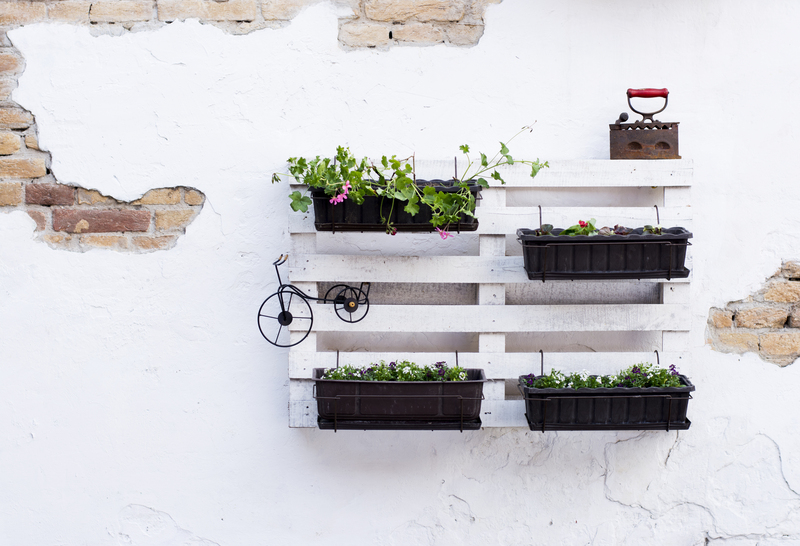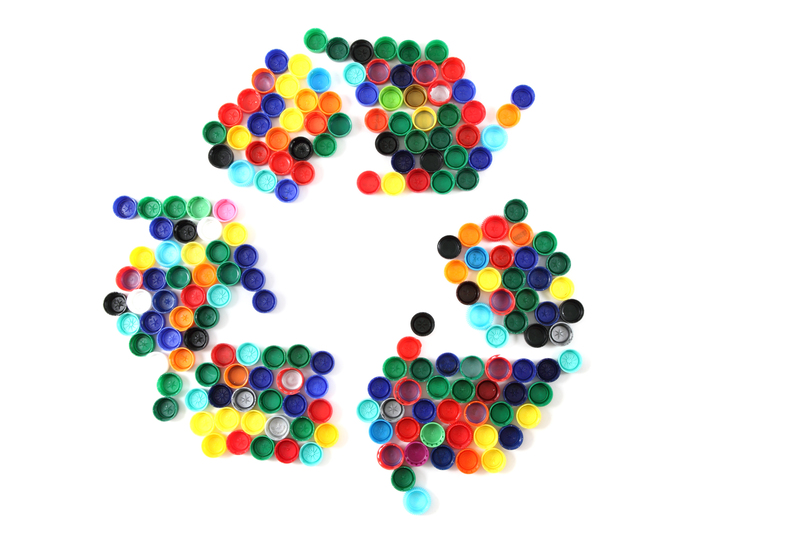Easy and Inexpensive Bulky Waste Management Ideas
Bulky waste is a growing concern for households and local communities. Older appliances, broken furniture, mattresses, and other oversized items can quickly clutter homes, yards, and landfills if not managed effectively. The disposal of such bulky waste doesn't have to be complicated or costly. In fact, there are numerous cost-effective and simple solutions to handle bulky refuse responsibly. In this comprehensive guide, we explore easy and inexpensive bulky waste management ideas that anyone can implement to keep their environment clean, organized, and sustainable.

Understanding Bulky Waste
Bulky waste, also known as bulk trash or large item refuse, refers to items that are too big or heavy for standard waste collection bins. Common examples include:
- Old sofas and chairs
- Mattresses and bed frames
- Broken appliances (refrigerators, washing machines, stoves)
- Large toys and outdoor playsets
- Carpets and area rugs
- Garden waste (branches, large plant pots)
- Bathroom fixtures (toilets, bathtubs)
Managing this type of waste can sometimes be a challenge, especially in urban settings where disposal options are limited. However, with knowledge and creativity, inexpensive bulky waste removal is truly possible.
Why Bulky Waste Management Matters
Proper bulky waste management is crucial for several reasons:
- Environmental Protection: Incorrect disposal can lead to pollution, harm wildlife, and overfill landfills.
- Public Health: Large discarded items can become breeding grounds for pests and cause accidents.
- Community Aesthetics: Street-side clutter and overflowing waste make neighborhoods unsightly.
- Resource Conservation: Many bulky items contain materials that can be reused, recycled, or repurposed.
Implementing simple and budget-friendly bulk waste management solutions ensures a cleaner environment and supports a more sustainable culture.
Top Easy and Inexpensive Bulky Waste Management Ideas
1. Sell or Donate Usable Items
Before considering bulky waste disposal, first assess whether your unwanted items are still usable. Often, furniture or appliances can find new life in another home. Here are a few practical options:
- Garage Sales: A classic and low-cost way to get rid of big items while making some extra money.
- Online Marketplaces: Platforms like Facebook Marketplace, Craigslist, and Nextdoor make it simple to list bulky goods for sale or free pickup.
- Charity Donations: Many organizations accept gently used furniture and appliances. Some will even arrange free pickup.
- Community Groups: Join local "buy nothing" groups on social media where people give and claim items without buying or selling.
Benefits:
- Reduces waste sent to landfill
- Helps families or individuals in need
- Minimizes your disposal costs
2. Repurpose and Upcycle Large Items
When standard disposal isn't the answer and the item can't be donated, consider creative upcycling. Repurposing adds value to old items and can save money on home improvements.
- Turning pallets into garden furniture
- Converting old doors into tables or headboards
- Transforming worn-out sofas into outdoor seating
- Using broken appliances for spare parts or unique decor
Upcycling is a fun DIY option that promotes sustainability and personal expression.
3. Use Free or Low-Cost Local Collection Services
Many municipalities offer bulky waste pickup services "on demand" or on a fixed schedule. These are often inexpensive or free for residents. Check your local government website or waste management company's resources to:
- See if you qualify for annual or semi-annual bulk item pickups
- Find drop-off events for electronics, large metal, and furniture
- Request special pickups online or via phone
Tip: Combine your collection with neighbors to conserve fuel and resources.
4. Recycling Centers and Drop-Off Points
Specialized recycling centers often accept items like refrigerators, washers, dryers, and mattresses. These centers extract recyclable materials, reducing landfill contributions. Some may even pay you for metallic or electronic components.
- Electronics recycling days: Many communities host events for e-waste or large tech devices.
- Mattress recycling programs: Certain locations process old beds to recover foam, metal, and textiles.
- Scrap metal yards: Accept everything from old stoves and bikes to bed frames and shelving.
Before visiting, always call ahead or check requirements to avoid unnecessary trips.
5. Partner with Local Junk Removal Startups
Many cities have affordable, eco-friendly junk removal services, often run by local startups or small businesses. These businesses will recycle, donate, or disposes of bulky refuse on your behalf - sometimes for less than a trip to the dump.
- Compare quotes online to find the best deal
- Request packing and labor help if needed
- Look for green certifications for responsible disposal
6. Organize a Neighborhood "Clean-Out" Day
Community clean-out days are excellent for areas where many homes need to dispose of bulky items at once. Pooling resources makes disposal cheaper and more efficient:
- Rent a dumpster together and split the cost
- Coordinate with the city for free bulk pickup during the event
- Set up a swap zone where neighbors can claim unwanted items before they're trashed
- Invite local recyclers and junk haulers to participate for better rates
Such events build community spirit and promote responsible, budget-friendly bulky waste disposal.
7. Creative Use of Waste Reduction Apps
There are now dozens of apps and websites that make bulky waste rehoming a breeze. Use these to find takers for anything from used building materials to beds and couches.
- Freecycle: Connects people giving or seeking free stuff locally.
- OfferUp & Letgo: Fast local listings for items that may be too large to move alone.
- TrashNothing: List unwanted goods for pick-up by anyone in your area.
8. Responsible Dumping and Disposal
If you must resort to throwing out your large items, always follow local regulations. Illegal dumping is unsightly, poses environmental risks, and may result in heavy fines.
- Consult with your waste management authority for permitted disposal points.
- Use local dumps and landfills responsibly. Some offer specific "bulky waste" days or discounted rates for residents.
- Properly separate hazardous materials like electronics and refrigerants to avoid contamination.
How to Reduce Bulky Waste Generation
The best way to manage bulky waste is to avoid generating it unnecessarily. Here are effective strategies to minimize future bulk trash:
- Choose quality over quantity - invest in durable goods that last longer.
- Buy second-hand - pre-owned items are less likely to end up as waste rapidly.
- Rent or borrow - for occasional-use items like tools and event furniture.
- Maintain and repair - fixing an item often costs less than replacing it and keeps it out of the waste stream.
Educating yourself and your community can significantly decrease waste output over time.
Quick Tips for Effective and Affordable Bulky Waste Handling
- Plan ahead: Arrange disposal before a big move, renovation, or spring clean.
- Keep items dry and covered: Moisture damages many things, reducing their recyclability and reuse potential.
- Disassemble when possible: Breaking down items saves space and can lower handling costs.
- Label electronics and hazardous items: Special handling may be needed for safety.
- Store for scheduled pickups: Don't leave bulk trash on the curb unless it's collection day.

Conclusion: Making Bulky Waste Management Simpler
Mastering easy and inexpensive bulky waste management ideas is about creativity, awareness, and participation. By making use of responsible disposal services, upcycling and donation, community events, and modern technology, anyone can reduce the impact of large waste on both their wallets and the planet. Always remember to check local guidelines, reuse whenever possible, and encourage others to join recycling or community cleanup efforts.
With these simple, affordable, and efficient solutions, bulky waste becomes less of a headache and more of an opportunity to build a cleaner, greener community!
Frequently Asked Questions about Bulky Waste Solutions
-
What items are usually considered bulky waste?
Large household appliances, furniture, mattresses, and fixtures that cannot be disposed of with regular garbage are typically classified as bulky waste. -
Can all bulky items be recycled?
No, not all bulky items are recyclable. However, many can be partially recycled or donated for repurposing. -
Is there a charge for bulky waste removal?
Municipalities often offer annual or scheduled pickups for free or a nominal fee. Private haulers may charge by item or load. -
How do I find out my local bulky waste collection schedule?
Visit your city or county's sanitation department website or call their information line for updated schedules and rules.
